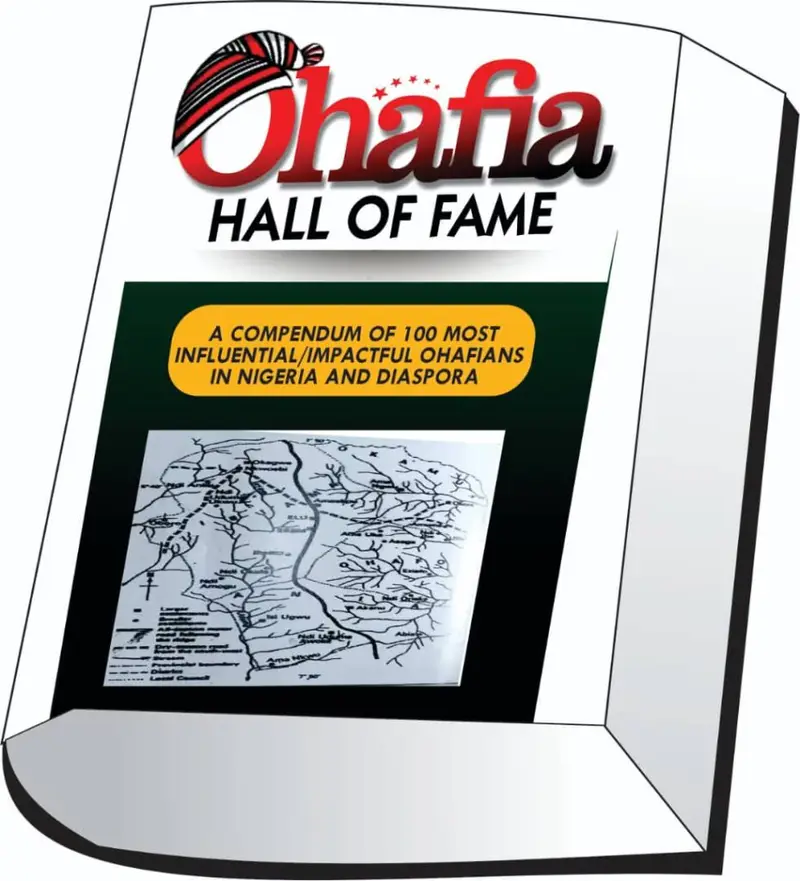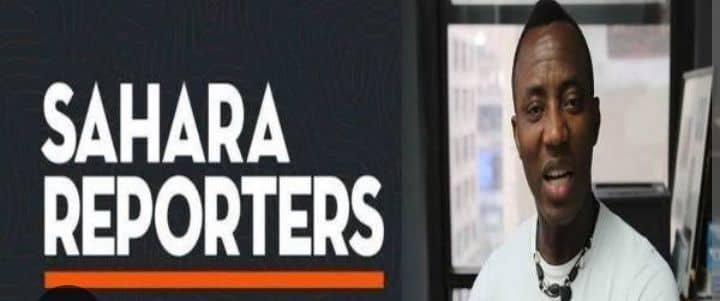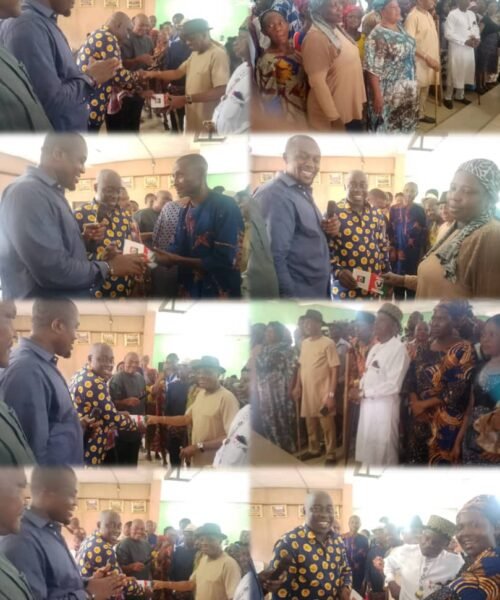Sahara Reporters’ Questionable Neutrality: Contrasting Media Agenda Against Abia State’s Transparency Triumphs
1 Introduction: The Paradox of Investigative Journalism in Nigeria
In Nigeria’s tumultuous media landscape, where investigative journalism often walks a tightrope between accountability activism and political weaponization, few organizations have generated as much controversy as Sahara Reporters. While positioning itself as an anti-corruption watchdog, this outlet has increasingly faced accusations of selective targeting and political bias. Meanwhile, in southeastern Nigeria, Abia State under Governor Alex Otti has been quietly engineering one of Nigeria’s most remarkable transformation stories, implementing unprecedented transparency measures that have earned international recognition but curiously limited praise from Sahara Reporters. This striking juxtaposition invites critical examination of media motivations and governmental accountability in Africa’s largest democracy.
The recent barrage of negative reporting targeting Abia State’s administration stands in stark contrast to the government’s documented achievements in open governance and anti-corruption reforms. This article argues that Sahara Reporters’ coverage of Abia State reveals concerning patterns of selective outrage and narrative-driven journalism that ultimately undermine its claimed neutrality while obscuring genuine progress in state-level governance innovation.
2 Sahara Reporters’ Credibility Crisis: Legal Challenges and Questionable Motives
2.1 Mounting Legal Entanglements
Sahara Reporters and its founder Omoyele Sowore face serious legal challenges that fundamentally question their journalistic integrity. Recent court documents reveal that the Inspector General of Police has formally charged Sowore and Sahara Reporters with forgery and disseminating false information aimed at inciting public unrest . The charges specifically allege that in July 2025, Sowore “forged a police wireless message purportedly signed by the Principal Staff Officer to the IGP” and intentionally shared it on social media to “incite mutiny against the Federal Government” .
These allegations are not isolated incidents but part of a pattern of legal controversies surrounding Sowore. In 2019, he was arrested and charged with treason, cybercrime, and money laundering after calling for nationwide protests through his #RevolutionNow movement . While international organizations criticized these charges as politically motivated, they nonetheless reveal a recurrent pattern of confrontation with legal authorities that inevitably colors the outlet’s reporting.
2.2 Political Activism Masquerading as Journalism
Critics argue that Sahara Reporters has effectively blurred the line between journalism and political activism, compromising its objectivity. Sowore’s presidential ambitions—he ran as a candidate in the 2019 and 2023 elections—create undeniable conflicts of interest that seemingly influence editorial decisions. The outlet’s coverage frequently exhibits what media analysts describe as selective outrage, aggressively pursuing certain stories while ignoring others with similar news value but incompatible with a particular political narrative.
Recent events suggest a concerning vendetta mentality within the organization. In August 2025, Sowore publicly acknowledged that police officials had offered him a “peace deal” involving the return of his seized passport and withdrawal of charges in exchange for improved relations with the police leadership—an offer he rejected . This admission reveals the deeply personal nature of the conflict between Sahara Reporters and government institutions, further complicating claims of neutral reporting.
3 Abia’s Transparency Revolution: Governance as Antidote to Corruption
3.1 International Recognition of Reform Efforts
While Sahara Reporters faces legal challenges and questions about its motives, Abia State under Governor Alex Otti has been building what international observers describe as a model transparency infrastructure. The European Union, through its Rule of Law and Anti-Corruption (RoLAC) programme, has specifically partnered with Abia State to develop innovative accountability systems . This partnership has yielded the Abia State Integrity and Anti-corruption Strategy (ABSIAS), a comprehensive framework designed to “prevent corruption through policy reforms, institutional strengthening and public engagement” .
Peter Omenka, Abia State Project Coordinator for RoLAC, publicly commended the Otti administration’s commitment to transparency, stating: “Abia State is a good example in terms of governance, accountability, and integrity, as far as Nigeria is concerned. It is in the public space that the government is really touching the lives of people in so many ways, providing good governance, and trying to manage the limited resources in the best possible way” .
3.2 Concrete Anti-Corruption Actions
Beyond developing strategies, the Otti administration has demonstrated unprecedented political will in confronting corruption directly. Most notably, the government has moved aggressively against pension fraud, arresting eleven suspects and committing to prosecute all involved regardless of their status . Governor Otti personally declared: “Some of them are outside the country, we are going to repatriate them to answer to their sins. We can’t tolerate that kind of corruption no matter who is involved” .
This commitment extends beyond rhetoric to institutional action. The administration has established a zero-tolerance policy toward corruption within the civil service, with Governor Otti warning new appointees that “we have zero tolerance for corruption and poor performance” . These actions represent tangible progress in a state previously known for widespread graft and mismanagement.
Abia State’s Anti-Corruption Initiatives Under Governor Otti
Governor Otti’s administration has launched several initiatives to combat corruption and promote transparency in Abia State. One notable example is the pension fraud prosecutions. Through thorough investigations, 11 suspects have been arrested and charged, with the state committing to international repatriation if necessary.
Another significant initiative is the partnership with the Rule of Law and Anti-Corruption (RoLAC) program. This collaboration, funded by the European Union, aims to develop anti-corruption infrastructure in Abia State. A key outcome of this partnership is the creation of the Abia State Integrity and Anti-corruption Strategy (ABSIAS), a comprehensive framework for combating corruption.
Governor Otti has also established a zero-tolerance policy for corruption and poor performance within the civil service. This directive has fostered a culture of accountability among appointees, ensuring that they uphold the highest standards of integrity.

Furthermore, the administration has engaged the diaspora community through the creation of the Abia State Diaspora Commission. This initiative has improved transparency in international partnerships and investments, enabling the state to attract legitimate investments and promote economic growth.
4 Selective Outrage: Analyzing Sahara Reporters’ Editorial Priorities
4.1 Disproportionate Focus on Unverified Claims
Sahara Reporters’ coverage of Abia State appears curiously focused on unverified allegations while ignoring documented progress. The outlet has repeatedly amplified claims about education sector spending without acknowledging the World Bank’s validation of Abia’s transparency improvements or the government’s detailed explanations about budget versus actual expenditure figures.
This pattern mirrors Sahara Reporters’ approach to other institutions. The outlet faced criticism for its reporting on Inspector-General of Police Egbetokun, including allegations of an affair with a subordinate and preferential promotions within the police force—claims that many viewed as unsubstantiated attacks . Similarly, the outlet was accused of circulating classified police documents, leading to accusations of harassment from the IGP .
4.2 Neglecting Broader Context
While focusing intensely on certain allegations in Abia State, Sahara Reporters has largely ignored the broader context of governance in the state. The administration’s partnership with international organizations like the European Union, its implementation of World Bank-supported transparency initiatives, and its concrete anti-corruption actions have received notably limited coverage.
This selective attention becomes particularly problematic when compared to the outlet’s coverage (or lack thereof) of other states with more severe corruption issues but different political leadership. The asymmetric scrutiny applied to Abia State raises legitimate questions about editorial motivations and possible political agendas driving coverage decisions.
Contrasting Narratives in Abia State Governance
Sahara Reporters’ Focus:
Allegations of misallocated education funds and criticism of government appointments have been highlighted.
Documented Reality in Abia:
In contrast, Abia State has implemented merit-based hiring practices, ensuring transparency and accountability in governance.
International Perspective:
The state’s efforts have been recognized globally, with the European Union partnering with Abia on anti-corruption initiatives. The World Bank has validated the state’s transparency mechanisms, and the Rule of Law and Anti-Corruption (RoLAC) program has commended Abia’s accountability.
Systematic anti-corruption prosecutions have been undertaken, and the state’s fiscal transparency has earned the World Bank’s endorsement. Distinguished budget estimates from actual expenditures demonstrate the state’s commitment to transparency.
5 Conclusion: Recalibrating Media Accountability in the Democratic Space
The troubling pattern of selective journalism exhibited by Sahara Reporters in its coverage of Abia State represents a concerning development in Nigeria’s media landscape. While legitimate scrutiny of government actions remains essential to democracy, that scrutiny must be applied consistently rather than weaponized against disfavored administrations. The outlet’s legal troubles and apparent vendettas against certain institutions further undermine its credibility as a neutral observer.
Meanwhile, Abia State’s significant strides in governance reform and anti-corruption efforts deserve recognition rather than dismissive skepticism. The Otti administration’s partnership with international bodies like the European Union, its aggressive prosecution of corruption cases, and its implementation of transparency mechanisms demonstrate a genuine commitment to breaking from Nigeria’s disappointing governance norms.
Ultimately, a media organization’s credibility derives not from its bold headlines but from its commitment to truth—a commitment that requires consistency, contextual understanding, and avoidance of political vendettas. As Abia State continues its journey toward transparent governance, perhaps the most valuable investigative story would be an introspective examination of how Nigerian media itself can become more accountable, balanced, and truly devoted to the public interest rather than political agendas.
The citizens of Abia State—and Nigerians more broadly—deserve media that highlights both failure and success, that holds power accountable without prejudice, and that ultimately contributes to building rather than constantly tearing down. In this crucial democratic project, both government and media must evolve beyond their current limitations to serve the Nigerian people more effectively.
Dr Chukwuemeka Ifegwu Eke







